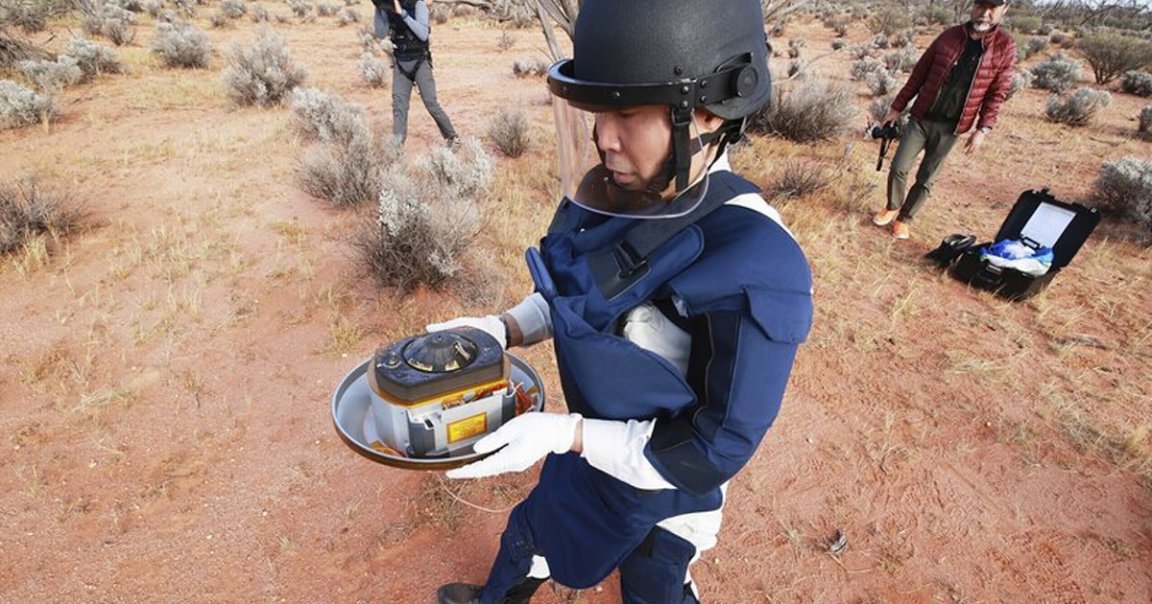
Special Delivery
After spending more than a year studying Ryugu, an asteroid some 180 million miles away, Japan’s space agency’s Hayabusa-2 spacecraft has returned samples from the space rock back to Earth.
A toaster-sized capsule released by the robot spacecraft landed in Woomera, South Australia in the early morning hours on Sunday, with about 0.1 grams of asteroid samples on board.
Mission Success
“Hayabusa-2 is home,” Yuichi Tsuda, project manager for the mission, said at a press conference, as quoted by the BBC. “We collected the treasure box. The capsule collection was perfectly done.”
“This morning [December 7], the recovery team confirmed that the sample container was properly sealed and completed the gas sampling work,” the Japanese mission’s official Twitter account wrote . “We analyzed the collected gas, but it is still unknown whether the gas originates from the Ryugu sample. Detailed analysis will continue in Japan!”
The event marks only the second time we’ve ever successfully returned asteroid samples. The first was when Hayabusa-2’s predecessor, Hayabusa, dropped off samples from asteroid 35143 Itokawa in June 2010.
Next Stop
Scientists are hoping to glean insights into the evolution of planets and how life may have ended up on Earth by studying asteroid samples that — unlike meteorites — haven’t been affected by the extremely hot temperatures of reentry through the atmosphere.
Astonishingly, Hayabusa-2’s mission is far from over. The small spacecraft is now on the way to 2001 CC21, an asteroid about the size of San Francisco Bay, for a 2026 flyby.
READ MORE: A capsule carrying asteroid rocks collected by Hayabusa-2 has successfully landed on Earth [MIT Technology Review]
More on the mission: Japanese Space Probe Returning to Earth, With Chunks of Asteroid